#highest rated 2019
Text
Has anyone else been having a hard time reading since the pandemic started or is it just me?
#april book blogs#dnf yet another book!#my reading has been everywhere since 2020#it was doing so well in 2019 then...shit happened#i just havent found a book that ive been truly engrossed in or given a 5 star recently#been trying to reread old favs#and try new books#i think my most highest rated book this year is probably stars and thats a few of them lol#lately been reading more fanfiction#so thats been helping
19 notes
·
View notes
Text
A spin-off of this poll post.
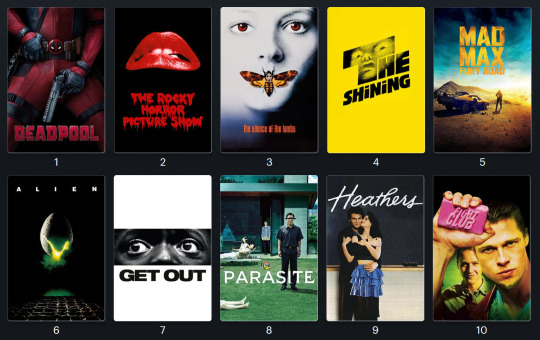
4K notes
·
View notes
Text
Double dose of articles about how crime is actually plummeting
From the UK:
"Seventy-eight per cent of people in England and Wales think that crime has gone up in the last few years, according to the latest survey. But the data on actual crime shows the exact opposite.
As of 2024, violence, burglary and car crime have been declining for 30 years and by close to 90%, according to the Crime Survey for England and Wales (CSEW) – our best indicator of true crime levels. Unlike police data, the CSEW is not subject to variations in reporting and recording.
The drop in violence includes domestic violence and other violence against women. Anti-social behaviour has similarly declined. While increased fraud and computer misuse now make up half of crime, this mainly reflects how far the rates of other crimes have fallen.
All high-income countries have experienced similar trends, and there is scientific consensus that the decline in crime is a real phenomenon.
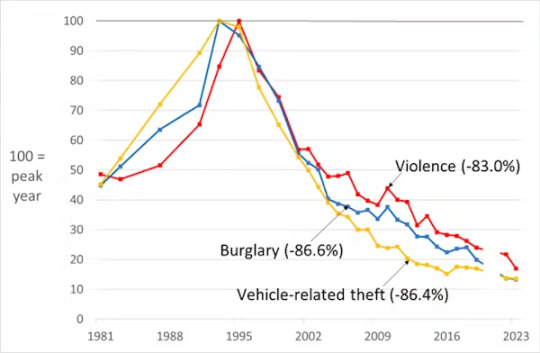
The perception gap
So why is there such a gulf between public perception and the reality of crime trends? A regular YouGov poll asks respondents for their top three concerns from a broad set of issues. Concern about crime went from a low in 2016 (when people were more concerned with Brexit), quadrupled by 2019 and plummeted during the pandemic when people had other worries. But in the last year, the public’s concern about crime has risen again.
There are many possible explanations for this, of which the first is poor information. A study published in 1998 found that “people who watch a lot of television or who read a lot of newspapers will be exposed to a steady diet of crime stories” that does not reflect official statistics.
The old news media adage “if it bleeds, it leads” reflects how violent news stories, including crime increases and serious crimes, capture public attention. Knife crime grabs headlines in the UK, but our shock at individual incidents is testament to their rarity and our relative success in controlling violence – many gun crimes do not make the news in the US.
Most recent terrorist attacks in the UK have featured knives (plus a thwarted Liverpool bomber), but there is little discussion of how this indicates that measures to restrict guns and bomb-making resources are effective."
-via The Conversation, May 13, 2024
And the United States:
"[The United States experienced a spike in crime rates in 2020, during the pandemic.] But in 2023, crime in America looked very different.
"At some point in 2022 — at the end of 2022 or through 2023 — there was just a tipping point where violence started to fall and it just continued to fall," said Jeff Asher, a crime analyst and co-founder of AH Datalytics.
In cities big and small, from both coasts, violence has dropped.
"The national picture shows that murder is falling. We have data from over 200 cities showing a 12.2% decline ... in 2023 relative to 2022," Asher said, citing his own analysis of public data. He found instances of rape, robbery and aggravated assault were all down too.
Yet when you ask people about crime in the country, the perception is it's getting a lot worse.
A Gallup poll released in November found 77% of Americans believed there was more crime in the country than the year before. And 63% felt there was either a "very" or "extremely" serious crime problem — the highest in the poll's history going back to 2000.
So what's going on?
What the cities are seeing
What you see depends a lot on what you're looking at, according to Asher.
"There's never been a news story that said, 'There were no robberies yesterday, nobody really shoplifted at Walgreens,'" he said.
"Especially with murder, there's no doubt that it is falling at [a] really fast pace right now. And the only way that I find to discuss it with people is to talk about what the data says." ...
For cities like San Francisco, Baltimore and Minneapolis, there may be different factors at play [in crime declining]. And in some instances, it comes as the number of police officers declines too.
Baltimore police are chronically short of their recruitment goal, and as of last September had more than 750 vacant positions, according to a state audit report...
In Minneapolis, police staffing has plummeted. According to the Star Tribune, there are about 560 active officers — down from nearly 900 in 2019. Mannix said the 2020 police killing of George Floyd resulted in an unprecedented exodus from the department...
In Minneapolis, the city is putting more financial resources into nontraditional policing initiatives. The Department of Neighborhood Safety, which addresses violence through a public health lens, received $22 million in the 2024 budget."
-via NPR, February 12, 2024
#crime#violate crime#united kingdom#england#wales#united states#us politics#baltimore#san francisco#police#defund the police#good news#hope
1K notes
·
View notes
Text
In 2007 the US Department of Housing and Urban Development started reporting homelessness rates:
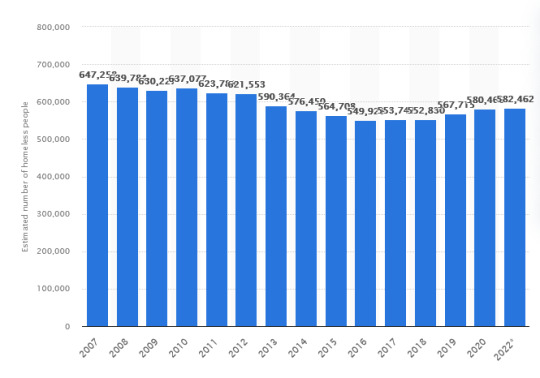
As you can see in this chart (from Statista) there was a fairly steady decrease in the number of homeless people from then until 2016. It flattened out for a couple years in 2017 and 2018, and then rose in 2019 and 2020. No data was collected in 2021 (due to COVID) and the increase from 2020 to 2022 was negligible, so one might hope based on the data from this chart that the upward trend was flipping around, and that by now by now it might be on its way back down, but this does not appear to be the case.
For 2023 the Department of Housing and Urban Development reported a homelessness count of 653,104. This is a dramatic increase which blows previous annual changes out of the water. It's a 12.1% increase relative to 2022, an 18.7% increase relative to the low in 2016, and the highest absolute number of homeless people since data started being collected in 2007.
So this is one way, at least, in which standard economic metrics being up has not translated to people doing well.
An objection one can make here is that even this new high is only about 0.2% of the national population, and while things may have gotten worse for the people in the very worst of economic straits, this doesn't say much about what things are like for the rest of us.
I agree with this up to a point. (Probably not the implied argument about what we should care about but let's not get into that for now.) It's probably true that homelessness rates don't shed a lot of light on how the median American is doing. But I think they are relevant to the well-being of a lot more than 0.2% of the population.
Even though only a small proportion of Americans are homeless at any given time, there a lot more for whom the threat of homelessness looms very large in their financial considerations, not irrationally. More people who are homeless probably means more people who can just barely make rent as long as they skip a few meals, more people who stay with an abuser because they wouldn't have anywhere else to stay, more people who can't quit their job to find a better one because they couldn't afford to miss a month's rent, more people who can't move out of a mold-infested apartment, more people who are just struggling with anxiety about whether they're going to be able to make rent every month. It also almost certainly means more people couch-surfing and more people who were homeless for part of the year that happened not to include late January, neither of which would be counted in the official statistics.
How much of an impact does this end up meaning, on how many people? I'm pretty unsure, but here's a suggestive statistic from the Federal Reserve:
> Challenges paying rent increased in 2023. The median monthly rent payment was $1,100 in 2023, up 10 percent from 2022. In addition, 19 percent of renters reported being behind on their rent at some point in the past year, up 2 percentage points from 2022.
It seems at least very plausible to me that claims about how great the US economy is doing merit a substantial asterisk.
544 notes
·
View notes
Text
As environmental, social and humanitarian crises escalate, the world can no longer afford two things: first, the costs of economic inequality; and second, the rich. Between 2020 and 2022, the world’s most affluent 1% of people captured nearly twice as much of the new global wealth created as did the other 99% of individuals put together, and in 2019 they emitted as much carbon dioxide as the poorest two-thirds of humanity. In the decade to 2022, the world’s billionaires more than doubled their wealth, to almost US$12 trillion.
The evidence gathered by social epidemiologists, including us, shows that large differences in income are a powerful social stressor that is increasingly rendering societies dysfunctional. For example, bigger gaps between rich and poor are accompanied by higher rates of homicide and imprisonment. They also correspond to more infant mortality, obesity, drug abuse and COVID-19 deaths, as well as higher rates of teenage pregnancy and lower levels of child well-being, social mobility and public trust. The homicide rate in the United States — the most unequal Western democracy — is more than 11 times that in Norway. Imprisonment rates are ten times as high, and infant mortality and obesity rates twice as high.
[...]
Our work has shown that the amount spent on advertising as a proportion of gross domestic product is higher in countries with greater inequality. The well-publicized lifestyles of the rich promote standards and ways of living that others seek to emulate, triggering cascades of expenditure for holiday homes, swimming pools, travel, clothes and expensive cars.
Oxfam reports that, on average, each of the richest 1% of people in the world produces 100 times the emissions of the average person in the poorest half of the world’s population. That is the scale of the injustice. As poorer countries raise their material standards, the rich will have to lower theirs.
[...]
The scientific evidence is stark that reducing inequality is a fundamental precondition for addressing the environmental, health and social crises the world is facing. It’s essential that policymakers act quickly to reverse decades of rising inequality and curb the highest incomes.
423 notes
·
View notes
Text

The government of Australia’s northeastern state of Queensland has stunned rights experts by suspending its Human Rights Act for a second time this year to be able to lock up more children.
The ruling Labor Party last month [August 2023] pushed through a suite of legislation to allow under-18s – including children as young as 10 – to be detained indefinitely in police watch houses, because changes to youth justice laws – including jail for young people who breach bail conditions – mean there are no longer enough spaces in designated youth detention centres to house all those being put behind bars. The amended bail laws, introduced earlier this year [2023], also required the Human Rights Act to be suspended.
The moves have shocked Queensland Human Rights Commissioner Scott McDougall, who described human rights protections in Australia as “very fragile”, with no laws that apply nationwide.
“We don’t have a National Human Rights Act. Some of our states and territories have human rights protections [...]. But they’re not constitutionally entrenched so they can be overridden by the parliament,” he told Al Jazeera. The Queensland Human Rights Act – introduced in 2019 – protects children from being detained in adult prison so it had to be suspended for the government to be able to pass its legislation.
---
Earlier this year, Australia’s Productivity Commission reported that Queensland had the highest number of children in detention of any Australian state. Between 2021-2022, the so-called “Sunshine State” recorded a daily average of 287 people in youth detention, compared with 190 in Australia’s most populous state New South Wales, the second highest. [...]
[M]ore than half the jailed Queensland children are resentenced for new offences within 12 months of their release.
Another report released by the Justice Reform Initiative in November 2022 showed that Queensland’s youth detention numbers had increased by more than 27 percent in seven years.
---
The push to hold children in police watch houses is viewed by the Queensland government as a means to house these growing numbers. Attached to police stations and courts, a watch house contains small, concrete cells with no windows and is normally used only as a “last resort” for adults awaiting court appearances or required to be locked up by police overnight. [...]
However, McDougall said he has “real concerns about irreversible harm being caused to children” detained in police watch houses, which he described as a “concrete box”. “[A watch house] often has other children in it. There’ll be a toilet that is visible to pretty much anyone,” he said. “Children do not have access to fresh air or sunlight. And there’s been reported cases of a child who was held for 32 days in a watch house whose hair was falling out. [...]"
---
He also pointed out that 90 percent of imprisoned children and young people were awaiting trial.
“Queensland has extremely high rates of children in detention being held on remand. So these are children who have not been convicted of an offence,” he told Al Jazeera.
Despite Indigenous people making up only 4.6 percent of Queensland’s population, Indigenous children make up nearly 63 percent of those in detention. The rate of incarceration for Indigenous children in Queensland is 33 times the rate of non-Indigenous children. Maggie Munn, a Gunggari person and National Director of First Nations justice advocacy group Change the Record, told Al Jazeera the move to hold children as young as 10 in adult watch houses was “fundamentally cruel and wrong”. [...]
---
[Critics] also told Al Jazeera that the government needed to stop funding “cops and cages” and expressed concern over what [they] described as the “systemic racism, misogyny, and sexism” of the Queensland Police Service.
In 2019, police officers and other staff were recorded joking about beating and burying Black people and making racist comments about African and Muslim people. The recordings also captured sexist remarks [...]. The conversations were recorded in a police watch house, the same detention facilities where Indigenous children can now be held indefinitely.
Australia has repeatedly come under fire at an international level regarding its treatment of children and young people in the criminal justice system. The United Nations has called repeatedly for Australia to raise the age of criminal responsibility from 10 to the international standard of 14 years old [...].
[MR], Queensland’s minister for police and corrective services, [...] – who introduced the legislation, which is due to expire in 2026 – is unrepentant, defending his decision last month [August 2023].
“This government makes no apology for our tough stance on youth crime,” he was quoted as saying in a number of Australian media outlets.
---
Text by: Ali MC. "Australian state suspends human rights law to lock up more children". Al Jazeera. 18 September 2023. At: aljazeera.com/news/2023/9/18/australian-state-suspends-human-rights-law-to-lock-up-more-children [Bold emphasis and some paragraph breaks/contractions added by me.]
896 notes
·
View notes
Text
Pride Petty Watch
Long story short, I owe the BL gods, so I'll be watching TWO series from my Petty List during the month of June. This list includes shows I haven't watched for purely petty reasons, so I'm asking the crowd to pick the two shows I will watch from all the MAME series, some censored Chinese bromances, a few sexual tension-filled Korean bromances, and one wild card.
I'm making my first ever poll, so whichever two series get the highest numbers will be the two I watch. And for all the kind people in the crowd, this is not the time to think about me. Pick your favorite. And for all the people who I annoy on the daily with my wild ass takes that piss you off, pick TharnType. But there is a possibility of a secret thirteenth option that would hurt me much worse . . .
The petty ass reasons are below the poll.
Disclaimer: If you're going to read the petty ass reasons, I need you to understand these are PETTY ASS REASONS, so don't try to hit me with 2,000 words about why me not watching censored bromances is a problem or why me not liking your fave hurts your feelings. Nah. Pick a show!
MAME
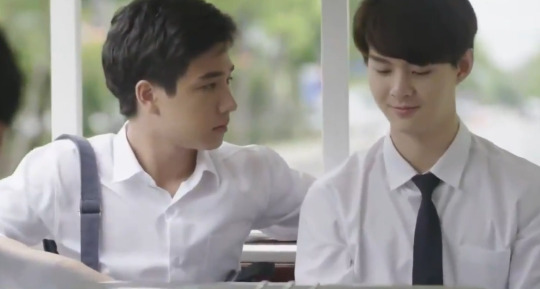
Love By Chance
This show came out at the end of 2018, and I watched the first episode, maybe first two, and thought it was boring. Then, in 2019, I saw a GIF of the locker scene, so I recommitted. I made it past the first episode just when the PerthSaint drama started spilling out everywhere, so I chucked the deuces and haven't returned since.
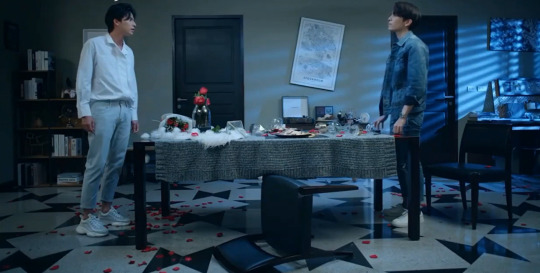
TharnType
For some reason, I couldn't find the first episode when it aired. Then, I found out how the first episode ended. Then, I found out about Type's past. Then, I just kept finding out more awful stuff until eventually the MewGulf shit finally hit the fan, and I was still reeling from the PerthSaint drama (and the emerging ZeeSaint chaos). At this point, I've built this show up so much that I'm afraid to see what it is actually about.
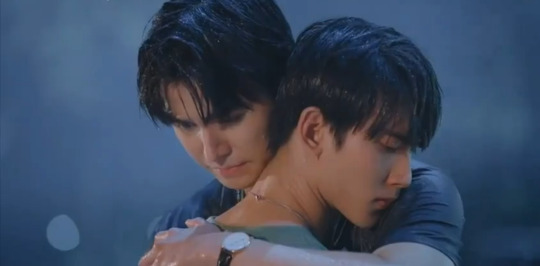
Don't Say No
A story of another GIF of a locker room scene sucking me in! After the first two MAME pairs blew up, I believed her shows were cursed, so I opted out of watching this one even though I thought it would be the one to vibe with me the most. But the biggest reason was because the main characters came from TharnType, so I felt like I would have to watch TharnType to understand this show, which was a big hell nah.
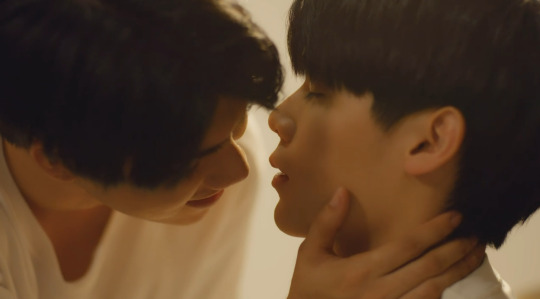
Love in the Air
I watched this through mutuals on my dash, so I feel like I did watch it. It is also the highest rated MAME series, so I had faith in it. However, when I found out about Sky's past, TharnType's ghost popped back up, and I realized this demon of a show is gonna haunt me in every MAME series.
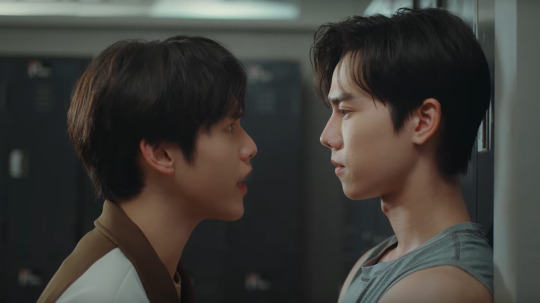
The Wedding Plan
Y'all hated one of the leads so much while it was airing that I now hate him, and I don't think I can let that go, so I'm coming in with pre-hate and TharnType's ghost, but on top of that, some of y'all said it was boring. But what is boring in a MAME series? Consent? Not kidnapping someone? I never got answers, so I'm very conflicted about this show.
Censored Chinese
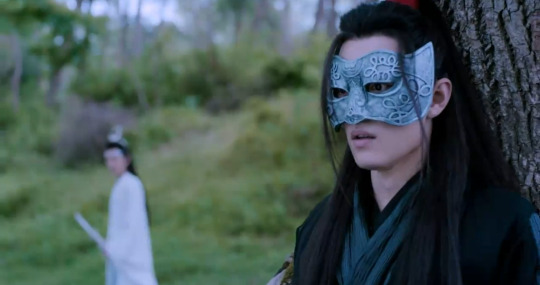
The Untamed
It's color coded, but FIFTY FUCKING EPISODES! What is this shit? Grey's Anatomy? The fuck! Second, once China pulled Addicted, I was holding grudges for life because it crossed from entertainment censorship into real-world oppression, so I could not bring myself to support media from a country that openly discriminates against the queers when I live in America where our highest court is just one Supreme Court Justice away from making us all live in the damn Mojo Dojo Casa House.
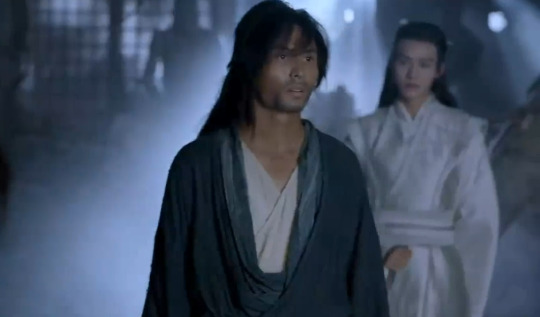
Word of Honor
It's color coded, but THIRTY-SIX FUCKING EPISODES! What is this shit? Supernatural?! The fuck! Second, I don't know the difference between this and The Untamed. Both are color-coded, one of them has a lot of uncles (?), one of them has awful facial hair, and they all have pretty outfits. Every time someone makes a reference about these shows, I just nod the same way I do when people mention Star Wars because none of it makes sense.
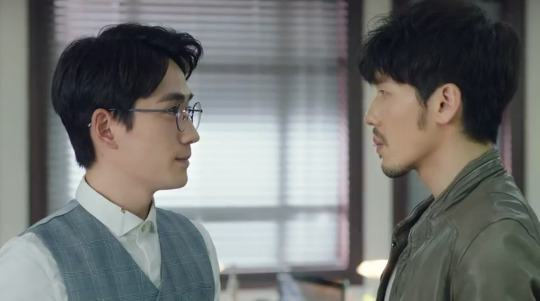
Guardian
I spent two years believing Killer and Healer was Guardian. I haven't watched either, but I thought they were the same show. Honestly, if this show wins, I might just watch Killer and Healer because I will forget they are not the same show. Don't they both solve cases? And because it's China, past lives must be involved, no? I'm looking at their MDLs as I write this, and I'm still not convinced they are different.
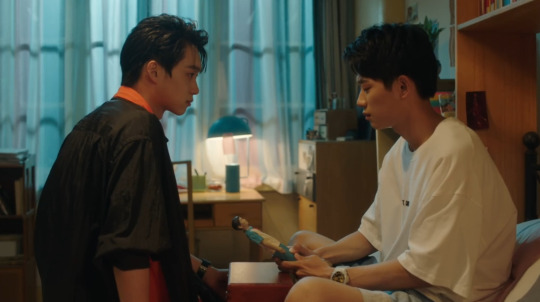
Stay with Me
It's color coded, but I know how it ends, and word on the street is that IS the ending since a second season seems unlikely. China couldn't just let me be hurt over Addicted, the original. No. Gotta hurt me again with Addicted, the remake. Rude af.
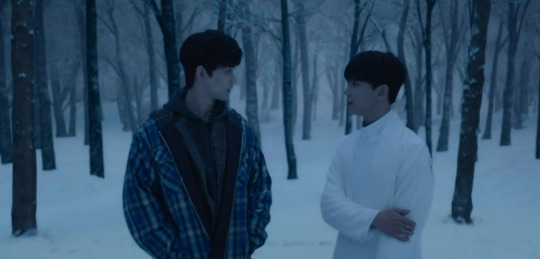
The Spirealm
First off, SEVENTY-EIGHT FUCKING EPISODES! What is this shit? Law & Order: SVU?! The fuck! I know how this ends, and it ain't happy! I don't care how people are trying to spin it, so to sit through SEVENTY-EIGHT DAMN EPISODES just for that ending already has me irate. And don't try telling me Viki combined episodes so it's only thirty-four. That's still a lot. However, everybody who has watched it says it's phenomenal, so is the pain worth it or are these people all lying so they convince themselves it was worth it?
Korean Bromance
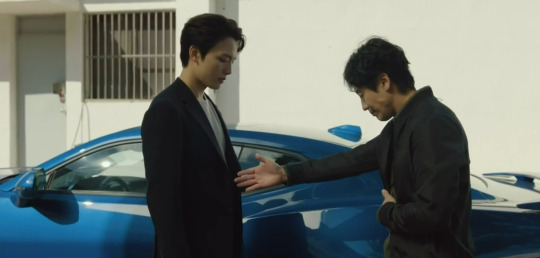
Beyond Evil
With most Korean dramas, I feel like I missing something important. Like some part of the story does not click with me and I stay lost for the rest of the show. I suck it up for the queers, but the not-queers-but-it-is-queer shows . . . nah, and especially one about cops . . . (-_-). Also, The Worst of Evil just showed, and it was another reminder that I need these cops to quit their jobs and just screw each other. Embrace "Be Gay. Do Crime"
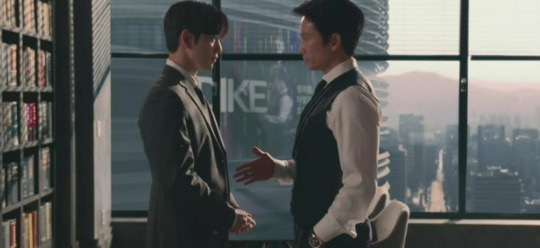
The Devil Judge
I know enough about Kpop to know GOT7 would not let one of its members kiss a man in this show. I looked at those GIFs of Jeff Satur and Jackson Wang on their show knowing damn well that if Wang got too close to Satur, an entire management team would have ascended from hell and kidnapped both of them, so the promo for this show was so wild because it felt queerbait-adjacent, and I was salty about it.
WILD CARD!
This option will be automatically unlocked IF this stupid little poll gets 216 votes, so I have high hopes this will not happen since I ain't that popular and I hate this wild card which is . . .
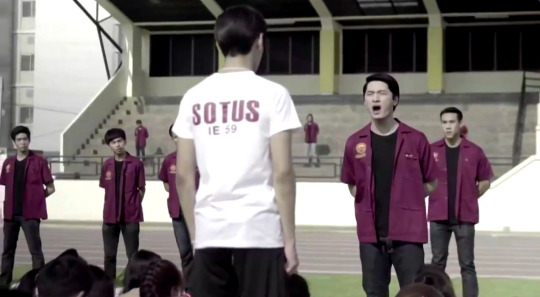
SOTUS
This show is my original TharnType. It came out in 2016. I watched it live. I watched the sequel. I remember neither. New was in it? Off was in it?! WHAT?! I have no memory of this show except Krist wiping his mouth, and I have carried that with me for eight damn years. I loved Be My Favorite, so I thought I moved past whatever strange grudge I was holding against this man who doesn't know I exist nor care, but then I saw that trailer for The Ex-Morning, and unlike Elsa, I can't let this shit go, so I'm willing to play Jumanji and go back into the jungle to finish this once and all.
So what it's gonna be, mi gente. Which demons am I facing for Pride and what shows do I get to stay petty about? Help me decide!
#Pride Petty Watch#it's time#help me decide which shows I'm watching#may the best demon win!#a promise is a promise#my blessings came quick#so I will not upset the BL Gods#I must pay them what I owe them#it is time
180 notes
·
View notes
Text
quick palestine fact sheet:
there are nearly 7 million palestinian refugees globally
1.5 million individuals live in the 58 recognized palestine refugee camps around palestine (i.e. in gaza, syria, east jerusalem, etc) recognized by the unrwa
67% of gaza's population are refugees
there are 905,000 registered palestine refugee children: 635,000 in gaza and 269,000 in the west bank
palestinian refugees frequently cannot access public health insurance and are barred from many professions; some areas bar them from education and formal work
in gaza poverty rates are nearly 82% and the unemployment rate is some of the highest in the world at nearl 47% as of august 2022
one recent study showed that 88% of palestinian children show signs of war-related post traumatic stress disorder
37% of adults in the gaza strip qualify for diagnosis for ptsd; however, this number should be approached cautiously, accounting for preconceptions about mental health, access to diagnosis, and hermeneutic injustice: the number is likely far higher
48,000 people in gaza have some form of a disability: more than one fifth of this number are children
palestinians are not allowed, by israeli law, to have citizenship; they have no freedom of movement, and can be subject to forced evictions, detention, and torture.
the per capita gdp of palestine is US$3,678 as of december 2021; this is in comparison to a gdp per capita of USD$52,000 in israel
palestine does not have a formal military. the us stopped aid to palestine, around $60 million, in 2019. palestinian security services receives around $27 million from the national budget.
hamas, a separate entity from the pss, receives around $300 million per year. in comparison, israel spends in excess of USD$23.6 billion annually on their military.
in the midst of disinformation campaigns by global powers, fight facts with facts- and with protests, rallying, donating, elevating the voices of palestinians. keep showing up. keep educating yourself and others. never give up hope. palestine will be free.
568 notes
·
View notes
Text
The report found that at a regional level, London had the highest destitution levels in 2022, followed by the North East and the North West of England, and then the West Midlands.
The regions in the south of England had the lowest rates of destitution, with both Wales and Scotland having rates comparable with the Midlands.
While destitution had increased in all regions of the UK over the period 2019 to 2022, the report found Scotland’s position had improved “with by far the lowest increase since 2019”.
It added: “This may be indicative of the growing divergence in welfare benefits policies in Scotland, notably the introduction of the Scottish Child Payment.”
263 notes
·
View notes
Photo
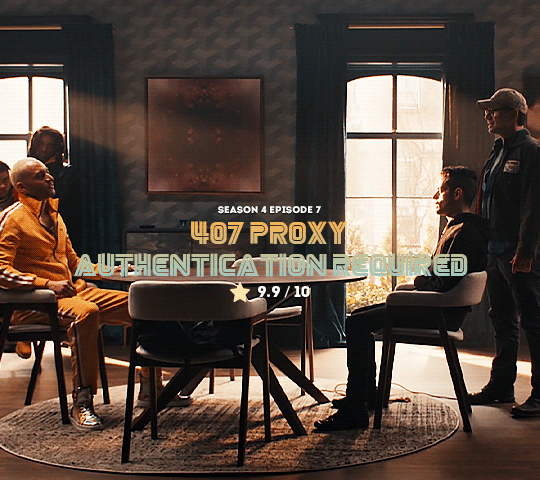
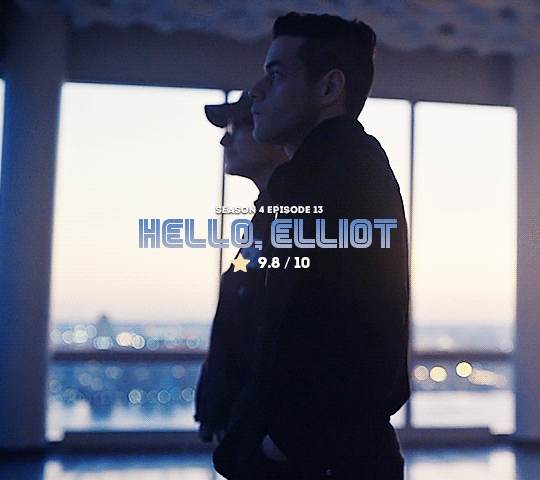
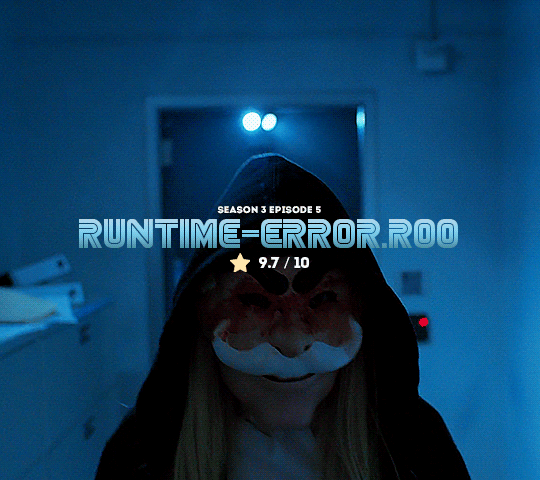
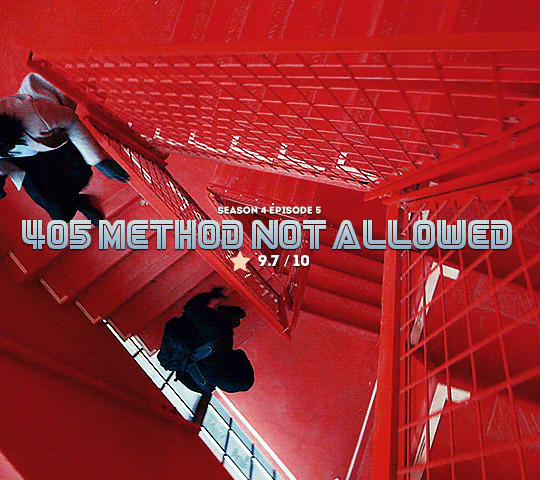

MR. ROBOT (2015 — 2019)
TOP 5 HIGHEST RATED EPISODES
#mr robot#mrrobotedit#elliot alderson#mr.robot#rami malek#christian slater#tvedit#cinematv#flashing gif#flashing image#myedits
438 notes
·
View notes
Text
Where It’s Most Dangerous to Be Black in America
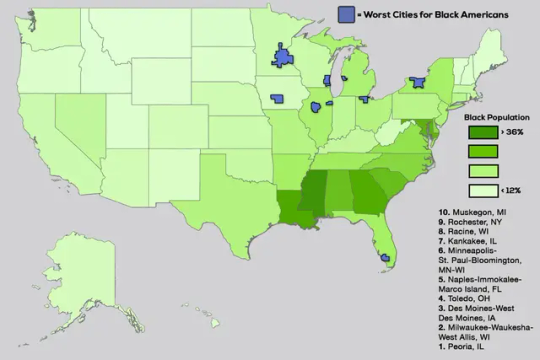
Black Americans made up 13.6% of the US population in 2022 and 54.1% of the victims of murder and non-negligent manslaughter, aka homicide. That works out, according to Centers for Disease Control and Prevention data, to a homicide rate of 29.8 per 100,000 Black Americans and four per 100,000 of everybody else.(1)
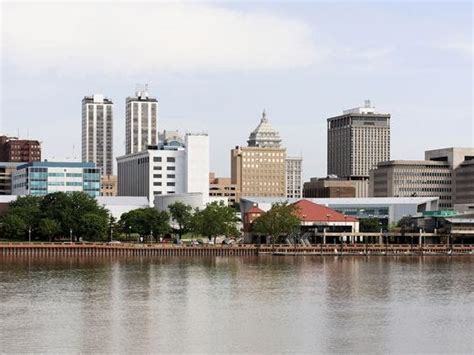
A homicide rate of four per 100,000 is still quite high by wealthy-nation standards. The most up-to-date statistics available from the Organization for Economic Cooperation and Development show a homicide of rate one per 100,000 in Canada as of 2019, 0.8 in Australia (2021), 0.4 in France (2017) and Germany (2020), 0.3 in the UK (2020) and 0.2 in Japan (2020).
But 29.8 per 100,000 is appalling, similar to or higher than the homicide rates of notoriously dangerous Brazil, Colombia and Mexico. It also represents a sharp increase from the early and mid-2010s, when the Black homicide rate in the US hit new (post-1968) lows and so did the gap between it and the rate for everybody else. When the homicide rate goes up, Black Americans suffer disproportionately. When it falls, as it did last year and appears to be doing again this year, it is mostly Black lives that are saved.
As hinted in the chart, racial definitions have changed a bit lately; the US Census Bureau and other government statistics agencies have become more open to classifying Americans as multiracial. The statistics cited in the first paragraph of this column are for those counted as Black or African American only. An additional 1.4% of the US population was Black and one or more other race in 2022, according to the Census Bureau, but the CDC Wonder (for “Wide-ranging Online Data for Epidemiologic Research”) databases from which most of the statistics in this column are drawn don’t provide population estimates or calculate mortality rates for this group. My estimate is that its homicide rate in 2022 was about six per 100,000.
A more detailed breakdown by race, ethnicity and gender reveals that Asian Americans had by far the lowest homicide rate in 2022, 1.6, which didn’t rise during the pandemic, that Hispanic Americans had similar homicide rates to the nation as a whole and that men were more than four times likelier than women to die by homicide in 2022. The biggest standout remained the homicide rate for Black Americans.

Black people are also more likely to be victims of other violent crime, although the differential is smaller than with homicides. In the 2021 National Crime Victimization Survey from the Bureau of Justice Statistics (the 2022 edition will be out soon), the rate of violent crime victimization was 18.5 per 1,000 Black Americans, 16.1 for Whites, 15.9 for Hispanics and 9.9 for Asians, Native Hawaiians and other Pacific Islanders. Understandably, Black Americans are more concerned about crime than others, with 81% telling Pew Research Center pollsters before the 2022 midterm elections that violent crime was a “very important” issue, compared with 65% of Hispanics and 56% of Whites.
These disparities mainly involve communities caught in cycles of violence, not external predators. Of the killers of Black Americans in 2020 whose race was known, 89.4% were Black, according to the FBI. That doesn’t make those deaths any less of a tragedy or public health emergency. Homicide is seventh on the CDC’s list of the 15 leading causes of death among Black Americans, while for other Americans it’s nowhere near the top 15. For Black men ages 15 to 39, the highest-risk group, it’s usually No. 1, although in 2022 the rise in accidental drug overdoses appears to have pushed accidents just past it. For other young men, it’s a distant third behind accidents and suicides.
To be clear, I do not have a solution for this awful problem, or even much of an explanation. But the CDC statistics make clear that sky-high Black homicide rates are not inevitable. They were much lower just a few years ago, for one thing, and they’re far lower in some parts of the US than in others. Here are the overall 2022 homicide rates for the country’s 30 most populous metropolitan areas.
Metropolitan areas are agglomerations of counties by which economic and demographic data are frequently reported, but seldom crime statistics because the patchwork of different law enforcement agencies in each metro area makes it so hard. Even the CDC, which gets its mortality data from state health departments, doesn’t make it easy, which is why I stopped at 30 metro areas.(2)
Sorting the data this way does obscure one key fact about homicide rates: They tend to be much higher in the main city of a metro area than in the surrounding suburbs.
But looking at homicides by metro area allows for more informative comparisons across regions than city crime statistics do, given that cities vary in how much territory they cover and how well they reflect an area’s demographic makeup. Because the CDC suppresses mortality data for privacy reasons whenever there are fewer than 10 deaths to report, large metro areas are good vehicles for looking at racial disparities. Here are the 30 largest metro areas, ranked by the gap between the homicide rates for Black residents and for everybody else.
The biggest gap by far is in metropolitan St. Louis, which also has the highest overall homicide rate. The smallest gaps are in metropolitan San Diego, New York and Boston, which have the lowest homicide rates. Homicide rates are higher for everybody in metro St. Louis than in metro New York, but for Black residents they’re six times higher while for everyone else they’re just less than twice as high.
There do seem to be some regional patterns to this mayhem. The metro areas with the biggest racial gaps are (with the glaring exception of Portland, Oregon) mostly in the Rust Belt, those with the smallest are mostly (with the glaring exceptions of Boston and New York) in the Sun Belt. Look at a map of Black homicide rates by state, and the highest are clustered along the Mississippi River and its major tributaries. Southern states outside of that zone and Western states occupy roughly the same middle ground, while the Northeast and a few middle-of-the-country states with small Black populations are the safest for their Black inhabitants.(3)
Metropolitan areas in the Rust Belt and parts of the South stand out for the isolation of their Black residents, according to a 2021 study of Census data from Brown University’s Diversity and Disparities Project, with the average Black person living in a neighborhood that is 60% or more Black in the Detroit; Jackson, Mississippi; Memphis; Chicago; Cleveland and Milwaukee metro areas in 2020 (in metro St. Louis the percentage was 57.6%). Then again, metro New York and Boston score near the top on another of the project’s measures of residential segregation, which tracks the percentage of a minority group’s members who live in neighborhoods where they are over-concentrated compared with White residents, so segregation clearly doesn’t explain everything.
Looking at changes over time in homicide rates may explain more. Here’s the long view for Black residents of the three biggest metro areas. Again, racial definitions have changed recently. This time I’ve used the new, narrower definition of Black or African American for 2018 onward, and given estimates in a footnote of how much it biases the rates upward compared with the old definition.
All three metro areas had very high Black homicide rates in the 1970s and 1980s, and all three experienced big declines in the 1990s and 2000s. But metro Chicago’s stayed relatively high in the early 2010s then began a rebound in mid-decade that as of 2021 had brought the homicide rate for its Black residents to a record high, even factoring in the boost to the rate from the definitional change.
What happened in Chicago? One answer may lie in the growing body of research documenting what some have called the “Ferguson effect,” in which incidents of police violence that go viral and beget widespread protests are followed by local increases in violent crime, most likely because police pull back on enforcement. Ferguson is the St. Louis suburb where a 2014 killing by police that local prosecutors and the US Justice Department later deemed to have been in self-defense led to widespread protests that were followed by big increases in St. Louis-area homicide rates. Baltimore had a similar viral death in police custody and homicide-rate increase in 2015. In Chicago, it was the October 2014 shooting death of a teenager, and more specifically the release a year later of a video that contradicted police accounts of the incident, leading eventually to the conviction of a police officer for second-degree murder.

It’s not that police killings themselves are a leading cause of death among Black Americans. The Mapping Police Violence database lists 285 killings of Black victims by police in 2022, and the CDC reports 209 Black victims of “legal intervention,” compared with 13,435 Black homicide victims. And while Black Americans are killed by police at a higher rate relative to population than White Americans, this disparity — 2.9 to 1 since 2013, according to Mapping Police Violence — is much less than the 7.5-to-1 ratio for homicides overall in 2022. It’s the loss of trust between law enforcement agencies and the communities they serve that seems to be disproportionately deadly for Black residents of those communities.
The May 2020 murder of George Floyd by a Minneapolis police officer was the most viral such incident yet, leading to protests nationwide and even abroad, as well as an abortive local attempt to disband and replace the police department. The Minneapolis area subsequently experienced large increases in homicides and especially homicides of Black residents. But nine other large metro areas experienced even bigger increases in the Black homicide rate from 2019 to 2022.
A lot of other things happened between 2019 and 2022 besides the Floyd protests, of course, and I certainly wouldn’t ascribe all or most of the pandemic homicide-rate increase to the Ferguson effect. It is interesting, though, that the St. Louis area experienced one of the smallest percentage increases in the Black homicide rate during this period, and it decreased in metro Baltimore.
Also interesting is that the metro areas experiencing the biggest percentage increases in Black residents’ homicide rates were all in the West (if your definition of West is expansive enough to include San Antonio). If this were confined to affluent areas such as Portland, Seattle, San Diego and San Francisco, I could probably spin a plausible-sounding story about it being linked to especially stringent pandemic policies and high work-from-home rates, but that doesn’t fit Phoenix, San Antonio or Las Vegas, so I think I should just admit that I’m stumped.
The standout in a bad way has been the Portland area, which had some of the longest-running and most contentious protests over policing, along with many other sources of dysfunction. The area’s homicide rate for Black residents has more than tripled since 2019 and is now second highest among the 30 biggest metro areas after St. Louis. Again, I don’t have any real solutions to offer here, but whatever the Portland area has been doing since 2019 isn’t working.
(1) The CDC data for 2022 are provisional, with a few revisions still being made in the causes assigned to deaths (was it a homicide or an accident, for example), but I’ve been watching for weeks now, and the changes have been minimal. The CDC is still using 2021 population numbers to calculate 2022 mortality rates, and when it updates those, the homicide rates will change again, but again only slightly. The metropolitan-area numbers also don’t reflect a recent update by the White House Office of Management and Budget to its list of metro areas and the counties that belong to them, which when incorporated will bring yet more small mortality-rate changes. To get these statistics from the CDC mortality databases, I clicked on “Injury Intent and Mechanism” and then on “Homicide”; in some past columns I instead chose “ICD-10 Codes” and then “Assault,” which delivered slightly different numbers.
(2) It’s easy to download mortality statistics by metro area for the years 1999 to 2016, but the databases covering earlier and later years do not offer this option, and one instead has to select all the counties in a metro area to get area-wide statistics, which takes a while.
(3) The map covers the years 2018-2022 to maximize the number of states for which CDC Wonder will cough up data, although as you can see it wouldn’t divulge any numbers for Idaho, Maine, Vermont and Wyoming (meaning there were fewer than 10 homicides of Black residents in each state over that period) and given the small numbers involved, I wouldn’t put a whole lot of stock in the rates for the Dakotas, Hawaii, Maine and Montana.
(https://www.washingtonpost.com/business/2023/09/14/where-it-s-most-dangerous-to-be-black-in-america/cdea7922-52f0-11ee-accf-88c266213aac_story.html)
139 notes
·
View notes
Text
"India’s announcement that it aims to reach net zero emissions by 2070 and to meet fifty percent of its electricity requirements from renewable energy sources by 2030 is a hugely significant moment for the global fight against climate change. India is pioneering a new model of economic development that could avoid the carbon-intensive approaches that many countries have pursued in the past – and provide a blueprint for other developing economies.
The scale of transformation in India is stunning. Its economic growth has been among the highest in the world over the past two decades, lifting of millions of people out of poverty. Every year, India adds a city the size of London to its urban population, involving vast construction of new buildings, factories and transportation networks. Coal and oil have so far served as bedrocks of India’s industrial growth and modernisation, giving a rising number of Indian people access to modern energy services. This includes adding new electricity connections for 50 million citizens each year over the past decade.
The rapid growth in fossil energy consumption has also meant India’s annual CO2 emissions have risen to become the third highest in the world. However, India’s CO2 emissions per person put it near the bottom of the world’s emitters, and they are lower still if you consider historical emissions per person. The same is true of energy consumption: the average household in India consumes a tenth as much electricity as the average household in the United States.
India’s sheer size and its huge scope for growth means that its energy demand is set to grow by more than that of any other country in the coming decades. In a pathway to net zero emissions by 2070, we estimate that most of the growth in energy demand this decade would already have to be met with low-carbon energy sources. It therefore makes sense that Prime Minister Narendra Modi has announced more ambitious targets for 2030, including installing 500 gigawatts of renewable energy capacity, reducing the emissions intensity of its economy by 45%, and reducing a billion tonnes of CO2.
These targets are formidable, but the good news is that the clean energy transition in India is already well underway. It has overachieved its commitment made at COP 21- Paris Summit [a.k.a. 2015, at the same conference that produced the Paris Agreement] by already meeting 40% of its power capacity from non-fossil fuels- almost nine years ahead of its commitment, and the share of solar and wind in India’s energy mix have grown phenomenally. Owing to technological developments, steady policy support, and a vibrant private sector, solar power plants are cheaper to build than coal ones. Renewable electricity is growing at a faster rate in India than any other major economy, with new capacity additions on track to double by 2026...
Subsidies for petrol and diesel were removed in the early 2010s, and subsidies for electric vehicles were introduced in 2019. India’s robust energy efficiency programme has been successful in reducing energy use and emissions from buildings, transport and major industries. Government efforts to provide millions of households with fuel gas for cooking and heating are enabling a steady transition away from the use of traditional biomass such as burning wood. India is also laying the groundwork to scale up important emerging technologies such as hydrogen, battery storage, and low-carbon steel, cement and fertilisers..."
-via IEA (International Energy Agency), January 10, 2022
Note: And since that's a little old, here's an update to show that progress is still going strong:
-via Economic Times: EnergyWorld, March 10, 2023
#india#solar power#renewable energy#green energy#sustainability#wind power#population grown#economic growth#developing economies#renewable electricity#carbon emissions#good news#hope#hope posting
855 notes
·
View notes
Text
In 2000, syphilis was close to being eliminated. Today, it’s part of the country’s sexually transmitted disease epidemic. According to the CDC, maternal syphilis rates between 2021 and 2022 was highest in South Dakota, which is one state where the case rate has increased more than 400 percent since 2016, followed by Mississippi and Louisiana.
What’s behind the rise in syphilis — and why can’t it be contained? As Salon has reported before, testing is becoming harder to come by for vulnerable populations because free test clinics — including some Planned Parenthood clinics — were defunded by Trump administration policies. But that’s just one part of the story. Salon spoke with Dr. Elizabeth Cherot, president, CEO of March of Dimes, and a practicing OB-GYN, to learn more.
Gigi Engle, a certified sex educator and lead intimacy expert at 3Fun, said she suspects condom use is declining for a few reasons. First, it could be due to inadequate sex education in schools, particularly in states where abortion bans are taking place like Texas and Idaho. As Guttmacher Institute found, adolescents between 2015 and 2019 were less likely to report receiving sex education on key topics than they were in 1995.
The same report found discrepancies in gender, such as that female adolescents between 2015 and 2019 were more likely than their female predecessors in 1995 to be instructed "on waiting until marriage to have sex." Sex education laws are determined on local levels, and as documented by Planned Parenthood, have been under attack since before overturning Roe v. Wade. Only 30 states and the District of Columbia require sex education to be taught in schools, and there's no guarantee for the information promoted to be medically accurate.
Engle added "pervasive patriarchal myths about condoms" could be to blame, too.
45 notes
·
View notes
Text
Tom Hiddleston Says Revisiting Loki Was ‘An Honor,’ Thanks Co-Stars for ‘Chemistry and Inspiration’
Ahead of accepting Variety’s Virtuoso Award at the Miami Film Festival, Hiddleston reflects on previous roles and impactful creative collaboration.
By Jenelle Riley

Tom Hiddleston knows “Miami.” That is, all the words to the Will Smith song titled after the famous city — a video of him reciting the lyrics once broke the Internet (not an unusual occurrence for the actor.) That was in 2012 when he was doing press for “The Avengers,” the movie that would change his life and career. It was also the same tour that last brought him to the city — but that was a whirlwind two days of press. “I do recall promoting ‘Avengers’ in Spanish and the city had a great, unique energy,” he says. “I’m really excited to be back as an explorer.”
The British actor will be returning on April 9 to the Miami Film Festival to accept Variety’s Virtuoso Award for his career achievements and will participate in a Q&A at the Adrienne Arsht Center – Knight Concert Hall. Tickets are available here.
And while Miami is known for its food and culture, the actor has one thing on his mind. “What will the weather be like?” he queries of the town’s famously balmy temperatures. “Because I’m coming from the wettest February on record in London’s history.”
Hiddleston admits it’s somewhat ironic to be receiving the Virtuoso Award there, because “when somebody says ‘virtuoso,’ I think of a dazzling soloist in an orchestra, and I feel about as far from that image as it’s possible to imagine.”
He continues: “I am the opposite of a soloist, actually. I always feel like I’m at my strongest in a team. What we do is a collective creative act and the joy of it is in the shared imagination.”
This might explain why his resume is filled with standout ensemble pieces in every genre. Hiddleston’s worked on stage — he earned a Tony nomination for his 2019 Broadway debut in “Betrayal” — the SAG Award-nominated ensemble of “Midnight in Paris,” up through his most current turn as the God of Mischief in Season 2 of the Disney+ series “Loki.”
The second season’s finale, “Glorious Purpose,” remains the highest-rated episode ever in the Marvel Cinematic Universe and brought a conclusion to an epic character arc that has spanned 14 years of Hiddleston’s life. The actor, who also served as producer on both seasons, says it would have been impossible without his “deep bench” of castmates, which includes Owen Wilson, Sophia Di Martino and Season 2 addition Ke Huy Quan, Oscar-winner for “Everything Everywhere All at Once.”
“I don’t know who said it, but there’s the phrase: ‘If you want to go fast, go alone. If you want to go far, go together,’” he notes. “And it’s never been truer than for this show.”
Community and collaboration are perhaps his favorite aspects of the work. “I truly find the most interesting work I have discovered happens between people. You show up and ready and prepared, but you take that preparation onto the dance floor and see what there is between you. If I’ve done anything of value, it’s because of that chemistry and inspiration I receive from another actor.”
Hiddleston says that team spirit extends to his next project, “The Life of Chuck,” a big-screen adaptation of the Stephen King novella that also stars Karen Gillan, Mark Hamill and Chewitel Ejiofor. “I’m a lifelong tennis fan and I feel like being on set is like playing tennis,” Hiddleston notes. “It’s all about who you’re playing opposite and the energy back and forth between you. And I have some great partners on ‘The Life of Chuck.'”
As for continuing Loki’s story in a third season, it’s a question Hiddleston is asked pretty much every day — several times. “I truthfully don’t know,” he says. “I am so proud of where we landed in Season 2. To go from this lost, broken soul in Asgaard, and be given a second chance and learn so much about life that he actually gives himself to protect other people, has been such an honor.”
For tickets to the conversation and Variety Virtuoso Award Presentation to Tom Hiddleston, visit here.
42 notes
·
View notes
Text
I will be curious to read the vituperative denials of the validity of this article's analysis, which is pasted below the cutoff:
“Are you better off today than you were four years ago?” That question, first posed by Ronald Reagan in a 1980 presidential-campaign debate with Jimmy Carter, has become the quintessential political question about the economy. And most Americans today, it seems, would say their answer is no. In a new survey by Bankrate published on Wednesday, only 21 percent of those surveyed said their financial situation had improved since Joe Biden was elected president in 2020, against 50 percent who said it had gotten worse. That echoed the results of an ABC News/Washington Post poll from September, in which 44 percent of those surveyed said they were worse off financially since Biden’s election. And in a New York Times/Siena College poll released last week, 53 percent of registered voters said that Biden’s policies had hurt them personally.
As has been much commented on (including by me), this gloom is striking when contrasted with the actual performance of the U.S. economy, which grew at an annual rate of 4.9 percent in the most recent quarter, and which has seen unemployment holding below 4 percent for more than 18 months. But the downbeat mood is perhaps even more striking when contrasted with the picture offered by the Federal Reserve’s recently released Survey of Consumer
The survey provides an in-depth analysis of the financial condition of American households, conducted for the Fed by the National Opinion Research Center at the University of Chicago. Published every three years, it’s the proverbial gold standard of household research. The latest survey looked at Americans’ net worth as of mid-to-late 2022 and Americans’ income in 2021, comparing them with equivalent data from three years earlier. It found that despite the severe disruption to the economy caused by the pandemic and the recovery from it, Americans across the spectrum saw their incomes and wealth rise over the survey period.
The rise in median household net worth was the most notable improvement: It jumped by 37 percent from 2019 to 2022, rising to $192,000. (All numbers are adjusted for inflation.) Americans in every income bracket saw substantial gains, with the biggest gains registered by people in the middle and upper-middle brackets, which suggests that a slight narrowing of wealth inequality occurred during this time. In particular, Black and Latino households saw their median net worth rise faster than white households did—though the racial wealth gap is so wide that it narrowed only slightly as a result of this change.
A big driver of this increase was the rising value of people’s homes—and a higher percentage of Americans owned homes in 2022 than did in 2019. But households’ financial position improved in other ways too. The amount of money that the median household had in bank accounts and retirement accounts rose substantially. The percentage of Americans owning stocks directly (that is, not in retirement accounts) jumped by more than a third, from about 15 to 21 percent. The percentage of Americans with retirement accounts went from 50.5 to 54.3 percent, a notable improvement. And a fifth of Americans reported owning a business, the highest proportion since the survey began in its current form (in 1989).
Americans also reduced their debt loads during the pandemic. The median credit-card balance dropped by 14 percent, and the share of people with car loans fell. More significantly still, Americans’ median debt-to-asset, debt-to-income, and debt-payment-to-income ratios all fell, meaning that U.S. households had lower debt burdens, on average, in 2022 than they’d had three years earlier.
The gains in real income (in this case, measured from 2018 to 2021) were small—median household income rose 3 percent, with every income bracket seeing gains. But that was better than one might have expected, given that this period included a pandemic-induced recession and only a single year of recovery.
The picture the survey paints, then, is one of American households not only weathering the pandemic in surprisingly good shape, but ultimately also emerging from it in better financial shape than they were going in. And that, in turn, points to the effect of the U.S. policy response to the crisis: Stimulus payments, enhanced unemployment benefits, the child-care tax credit, and the moratorium on student-loan payments boosted household income and balance sheets, helping people pay down debt and increase their savings. In the process, these policies mildly narrowed inequality.
The U.S. government’s aggressive response to the pandemic, including Biden’s stimulus spending, also helped the job market recover all its pandemic-related losses—and add millions of jobs on top. The resulting tight labor market has been a huge boon to lower-wage workers. In fact, because the Fed survey’s income data end in 2021, it understates the income gains for the bottom half of the workforce, and the shrinking income inequality they’ve produced.
Hourly wages for production and nonsupervisory workers (who make up about 80 percent of the American workforce) rose 4.4 percent year-on-year in the third quarter of 2023, for instance, ahead of the pace of inflation. And this was not anomalous: Arindrajit Dube, an economist at the University of Massachusetts at Amherst, crunched the numbers and found that real wages for that same sector of workers are not just higher than they were in 2019, but are now roughly where they would have been if we’d continued on the upward pre-pandemic trend.
The reason for this is simple: Low unemployment has translated into higher wages. As a recent working paper by Dube, David Autor, and Annie McGrew shows, the tight labor markets of the past few years have given lower-wage workers more bargaining power than in the past, leading to a compression in the wage gap between higher-paid and lower-paid workers. Of course, that gap is still immense, but the three scholars found that the wage gains for lower-paid workers have rolled back about a quarter of the rise in inequality that has occurred since the 1980s.
So what should we take away from the Survey of Consumer Finances data, and from Dube, Autor, and McGrew’s work? Not that everything is fine, but that public policy and macroeconomic management matter a lot. Enhanced unemployment benefits, the child-care tax credit, the stimulus payments—these things materially improved the lives of Americans and helped set the economy up for a strong recovery. If the policy response had been less aggressive, the U.S. economy would be in worse shape now. This is something you can see by looking at Europe, where economies are growing far more slowly and unemployment is higher, while inflation is no lower.
Key to this story is the fact that lower-wage workers in particular would be worse off, because they have been among the chief beneficiaries of the low unemployment created by the robust recovery. It’s a useful reminder that stagnant wages are not an inevitable result of American capitalism: When labor markets are tight, and employers have to compete with one another for employees, workers get paid more.
So, even allowing for the high inflation we saw in 2022, no one could really look at the U.S. economy today and say that the policy choices of the past three years made us poorer. Yet that, of course, is precisely how many Americans feel.
Although that pessimism does not bode well for Biden’s reelection prospects, the real problem with it is even more far-reaching: If voters think that policies that helped them actually hurt them, that makes it much less likely that politicians will embrace similar policies in the future. The U.S. got a lot right in its macroeconomic approach over the past three years. Too bad that voters think it got so much wrong.
#someone somewhere out there will find this infuriating#I'm not an economist and almost every time anyone says anything about economics I think 'sure that makes sense'#so I post in my ignorance#try to resist calling me a retard when you tear this apart#and it's always the worst with things like statistics because someone's gonna be like 'well if you reframe the numbers slightly#you'll find that in fact this article demonstrates that we have less wealth per capita than your average North Korean'
63 notes
·
View notes
Text
A Family of Three (C.L 16) - Part.I- Discoveries, Reunions, and Surprises
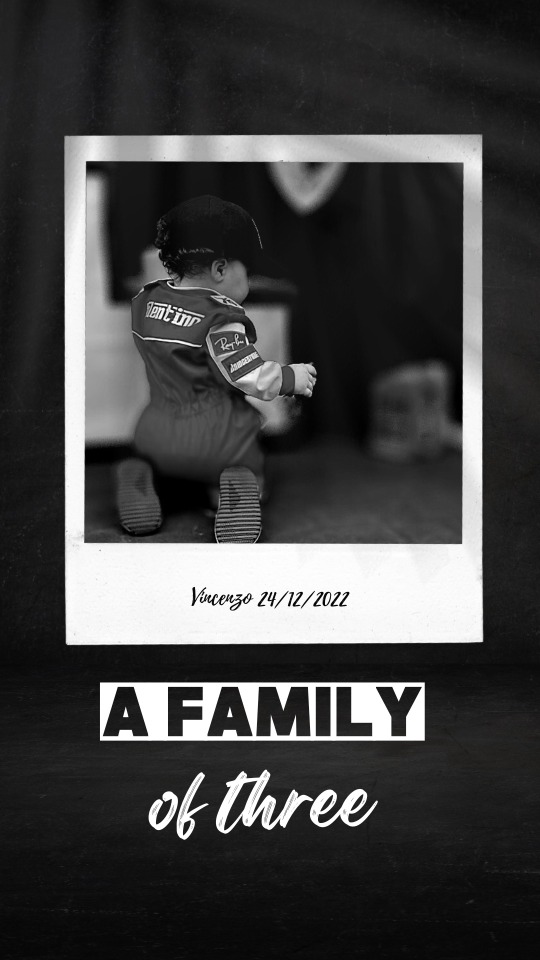
Paring: Charles Leclerc X OC!Marie Anderson
Synopsis: Charles and Marie ended any chance of a relationship years ago. They just didn't expect to have to share custody of a child after the death of their best friend.
⚠️ Warnings: Mention of death and murder, swearing, Charles being a little aggressive in his reactions, mention of sex and drug use. (This chapter may contain triggers!) (+16)
**In this story, Jules Bianchi died in 2019, not 2015, which changes some facts in the careers of the drivers.
A.N: Hello! How are you doing? After a long time, I finally brought Part 1 translated into English! Remembering that English is not my first language, so there may be some mistakes! I tried my best!
Feedback is always welcome. Let me know if you liked it!
Word Count: 7.882
Read the prologue here!
🇮🇹 🇮🇹🇮🇹🇮🇹🇮🇹🇮🇹🇮🇹🇮🇹🇮🇹🇮🇹🇮🇹🇮🇹🇮🇹🇮🇹🇮🇹🇮🇹
January 15th, 2023 - Milan, Italy
"Good morning, Marcella!" I greet my secretary as I enter the office. "Any news for me?" I ask the blonde girl who is sitting with her eyes fixed on the computer in front of her.
"Good morning, Marie! And...HA! I did it!" Marcella suddenly jumps, startling me. "I'm sorry! It's just that I managed to schedule the meeting with Fred Lacroix for next week." She says, trying to compose herself, and I smile."
"That's great! You're amazing," I say, leaning over next to her at the table and taking a peek at her computer. "Do you think he'll be in a good mood? He's not exactly known for being pleasant when it comes to selling and buying his art," I ask and Marcella just shrugs.
"I don't know, and honestly, I don't worry about it," she says, and I can see a smug smile spread across her face. "Either way, we're awesome! We always get what we want," she finishes, and I laugh at her enthusiasm.
I agree with Marcella. We are awesome and always get what we want when it comes to work.
After Jules died, I moved from Monaco to Italy. I felt like I needed to leave it all behind, even if it meant burying a part of who I was with my past. I needed a fresh start, and I closed my eyes to my old life. I had nothing left in Monaco. Nothing held me back or was even worth staying for.
I needed time and a new life, and that's exactly what I found when I came to Italy, where I was able to enroll in arts just in time to continue the school year. And a year and a half later, I graduated and started interning at one of the best galleries in Milan. Shortly after that, I realized I had a lot of potential for curating and dedicated myself to the field, of which today I am still a part, with the highest success rate in recruiting and selling new artists.
Today, I can say that my life is more than comfortable, and I spend so much of my day occupied with work that I hardly have time to think about everything I left behind a few years ago.
"Ah!" Marcella screams and catches me off guard, making me take a few steps back.
"Oh my god, Marcella! You're going to kill me, girl!" I say and put my hand on my chest, feeling my heart skipping like crazy.
"Sorry! I just remembered you got a letter this morning," she says, and I swear my confusion is written all over my face. "I mean, you didn't really get it, it's more like 'they passed the envelope under the door while we were closed, and I stepped on it when I got here'," she says and pulls out a crumpled white envelope with a half footprint on it. "I tried to clean it up, but as you can see, it didn't go very well. Seriously, someone should clean the streets of Milan more," she says and hands me the envelope.
I examine the envelope to find the sender, but I only find "Marie Anderson" written in delicate handwriting.
"There's no sender. That's strange." I say and Marcella nods.
"I thought it was kind of creepy too. I mean, who still sends letters In 2023? Isn't it easier to send a message on Insta? Or like, an email?" I nod my head and shrug.
"Well, let it be," I say and start walking towards my office. "Please let anyone who wants to speak to me know to leave a message. And that includes my mom, okay?" I say and Marcella nods. "Great, thanks," I say, entering my office and closing the door behind me.
I throw my bag on the desk and sit in my chair. I analyze the envelope in my hand again and for a moment, I feel a strange sensation as I stare at it.
"Okay, let's end the suspense, Marie," I say to myself and I grab a staple remover from the pencil holder, passing it over the glued part of the envelope.
Opening the envelope, I take out a sheet of paper with the same handwriting as the envelope, and two photos of a little boy with dark hair and eyes who I swear I've never seen before, but who somehow seems very familiar to me. I turn over the photos to see if there's anything written on the back.
"Vincenzo. 24/12/2021"
Was written in one of the photos. The little boy was sitting next to what looked like a Christmas tree. I took a look at the next photograph, where the same boy, who seemed a bit older, was sitting on a mat surrounded by toys.
"Vincenzo. 19/12/2022."
Feeling even more confused and with a strange sensation spreading through my chest, I picked up the letter I had left aside on the table and began to read it.
France, January 2nd, 2023.
Marie,
I can't even begin to tell you how many times I've thought about how I would write to you. You don't know me, and to be honest, I don't think anyone in his circle of friends and family has even heard of me.
My name is Cecilia, and that's all you need to know about me right now, aside from what I'm about to write to you next: I was engaged to Jules Bianchi.
I know this is strange and perhaps even unbelievable, but it's true. Jules and I had a brief but passionate love story. I loved Jules, and I can say that he loved me too.
Two days before his death, I found out that I was pregnant. I gave birth to Vincenzo on December 24th, 2019. He was a healthy and strong little boy, very similar to Jules.
I loved him from the moment I found out he was growing inside me. The result of something so pure and beautiful, from my relationship with Jules.
I know it's a lot for you to process right now, but so that you can know that I'm telling you the truth, there are two photos of Vincenzo. I want you to look at them and see Jules, just as I do every time I look at my son.
"I've been wanting to write to you for a long time. Jules saw you as a sister. I'm sorry I hid this from you and his family too, but I was so afraid. Afraid of rejection, of being seen as a liar. I couldn't go through any of that. I only had Jules, and after he left me, there was no one else I could trust, so I've been raising Vincenzo alone until now, but I don't think I can do it anymore. Vincenzo has a family besides me. And I need him to grow up knowing that he is loved.
I promise I to explain everything you need to know. Please meet me at the café where you used to meet every time you came together to Nice. January 18th at 4 pm.
- Cecilia.
My hands tremble as I put the letter back on the table.
What the hell is this? Is this some kind of sick joke?
I take the two photos back in my hands and stare at them, now realizing why I found that boy so familiar. It was Jules. That boy is the spitting image of Jules.
But how is this even possible? Why didn't Jules tell us he had someone? That's not like him. Jules was always an open book to us. He told us everything, just as we did with him. He wouldn't hide this from us...would he?
With my head swimming with questions and my heart heavy as lead, I found myself shouting Marcella's name, and less than a minute later, her short locks appeared through the door.
My hands tremble as I put the letter back on the table.
What the hell is this? Is this some kind of sick joke?
I take the two photos back in my hands and stare at them, now realizing why I found that boy so familiar. It was Jules. That boy is the spitting image of Jules.
But how is this even possible? Why didn't Jules tell us he had someone? That's not like him. Jules was always an open book to us. He told us everything, just as we did with him. He wouldn't hide this from us...would he?
With my head swimming with questions and my heart heavy as lead, I found myself shouting Marcella's name, and less than a minute later, her short locks appeared through the door.
"Yes?" She asks before looking at me for a moment and entering my office complete with a worried expression. "Are you okay, Marie?" She says kneeling by my side.
"Book a flight for tomorrow morning. I need to go to France."
🇫🇷🇫🇷🇫🇷🇫🇷🇫🇷🇫🇷🇫🇷🇫🇷🇫🇷🇫🇷🇫🇷🇫🇷🇫🇷🇫🇷🇫🇷🇫🇷
January 18th, 2023. - Nice, France.
I stare again at the clock hanging on the wall above the counter of the small café. 3:45 PM.
15 minutes. Just 15 minutes until I could find out who Cecilia was and why she decided to contact me now, after all this time. And why me? Yes, Jules, Charles, and I were always very close despite the age difference. But why reach out to me? If she intended to introduce the boy to Jules' family, why didn't she contact Christine or Philippe?
I hadn't seen Jules' family in a long time, we didn't even exchange messages. I left them behind when I decided to move on to Italy. They were buried with my past in Monaco.
The bell on the entrance door rings, indicating that someone has entered the premises. My head quickly snaps toward the sound.
And it's like in one minute, everything I struggled so hard to forget and leave behind comes back with force and without control like waves of a tsunami.
Standing just a few meters away from where I'm sitting, my gaze meets Charles'.
Charles. My ex-boyfriend whom I haven't seen in almost four years. The part that hurts the most from my past, besides the death of Jules.
He looks different. So different from the last time I saw him at Jules' funeral. This time he's not dressed in mourning black, no. He's wearing casual clothes, dark jeans, and a moss green sweater with the word "FERRARI" stamped in black. There's a scruffy beard on his face and his eyes...damn. The eyes that last time reflected so much hopelessness were now more alive, but still with certain traces of concern.
Charles walks up to where I'm sitting, his steps quick and wide as if he wanted to corner me before I could escape again. He stops half a meter away, and his gaze curiously roams over me. His expression is stern but also covered in doubt. I bet that, like me, he wants to understand why I'm here.
"Charles..." I'm the first to say, my voice low and uncertain. He nods slowly, his gaze still fixed on me, as if he wants to uncover all the secrets I gained during the years we were apart.
“What are you doing here, Marie?" he asks, direct and determined, without any hesitation. It's a tone I would have never expected to hear from the Charles I left four years ago. Yes, he really has changed.
I wished I could answer him with the same intensity, but honestly, I don't think I could. There's so much going on here and my head is spinning with so many questions and emotions. Why is Charles here? What the hell is going on? Did he set all this up?
"Is this some kind of joke? Because if it is, I swear to God it's not funny," he says, his tone now rough.
I sit there staring at him, completely confused.
Charles runs his hand through his hair, messing up his brown locks even more. He sighs heavily and closes his eyes, his tongue quickly passing over his lower lip. He used to do that all the time when he felt anger or frustration. At least that hasn't changed.
"What are you doing here, Charles?" I ask, and he opens his eyes, once again staring at me.
Charles's hand reaches into his back pocket and pulls out an envelope identical to the one that was left for me in the office in Italy. The difference is that I can see that this one was addressed to Charles, only his name, and also without a sender.
"Please tell me it wasn't you, Marie," he says as his eyes shift from the envelope to my face. I look at him with all the sincerity I can muster and answer, "No, it wasn't me." He nods his head, his expression softening a bit. He moves and sits in the vacant chair in front of me, his hands going up to his face to rub it.
"Jules has a son," he says.
"I know," I reply.
"Charles lowers his hands and stares at me once again, confusion etched on his face. Before he can say anything, I reach into my bag on the table, open it, and take out the white envelope. Charles looks at my hand for a moment before reaching over the table to take the envelope from me."
"You got one too," he says, not looking at me, even though it's not a question, I nod my head in agreement.
"It seems she arranged to meet with both of us. I think it's easier if we hear the story at the same time, that way there's no risk of getting the wrong versions," I say, and his gaze shifts from the envelopes on the table to me.
"Do you think it's a lie? That the boy isn't Jules's son?" he asks seriously, and I just shrug in response.
"I believe it could be Jules's son. I just don't know why she waited all this time and why she chose us. Obviously, we're not the best people to show Vincenzo that he has a family on his father's side," I say, and I see Charles's jaw tighten.
"We were friends with Jules. He trusted us," he says, once again his voice sounding rough.
"It seems he didn't trust us enough to tell us he fell in love," I say, and immediately regret it.
I look at Charles and if we were part of a cartoon, he would have flames in his eyes.
“You don't know what happened. You don't know his reasons, just like me,” he says through gritted teeth. “Don't doubt his motives. Not when he's not here to defend himself.”
In all the years I've spent by Charles' side, I've never seen him so angry. And if I didn't know him, I'd be scared.
But do you still know him? I silently ask myself.
"That's not what I meant," I defensively reply. "I'm sorry, I didn't mean for it to come out that way. Of course, Jules had reasons and we'll find out when Cecilia arrives." Charles relaxes his jaw and adjusts in his seat.
I look at the clock on the wall again. 4:10 PM. She's late. I look at Charles, a little anxious.
"Do you think she's coming?" he shrugs, but his hand goes into his hoodie pocket and pulls out a cell phone.
"She's late," he states what I already know. "But I think so, she's coming." Charles carelessly tosses the phone onto the table, his anxious fingers fidgeting with his rings.
"Congratulations on the runner-up, by the way," I say, trying to ease both of our anxieties, and he looks back at me.
"Did you follow the races?" he asked, a little surprised.
"Yes," I admit, somewhat embarrassed. "My secretary is a huge Formula 1 fan," I add, which is not a lie.
Like all Italians, Marcella is a devoted Tifosi. And even though I wanted to leave everything I knew behind, I couldn't escape one of the most beloved sports in Europe, especially in Italy, the home of Ferrari.
Charles lets out a low laugh, his look adopting the expression of a mischievous boy. Oh no.
"Your secretary, huh?" he says with a teasing and suggestive tone.
"Ah, shut up, Leclerc!" I say, trying to sound serious but failing when I let out a laugh. "I'm serious! My secretary is a diehard Tifosi. She can't shut up for a minute about Ferrari and makes me watch all the races," I say, shrugging.
"Yeah, yeah... And I bet I'm your 'secretary's' favorite driver, right?" he says, making air quotes with his fingers and having a smug smile on his face.
"Actually, she prefers Sainz," I say, and instantly his smile turns into a serious expression, which makes me laugh.
Soon, Charles' dimples appear on his cheek and my heart skips a beat at the sound of his typically somewhat flawed and exaggerated laugh. Oh, how I enjoyed hearing that horrible but at the same time very cute laugh again.
At that moment, even though I hated to admit it, I realized how much I missed that feeling of familiarity and lightness. And even though just a few minutes ago, I was doubting whether I still knew the person that Charles had become, I could see that regardless of the years and tragedies that life had subjected him to from a young age, that kind and playful boy that I had once fallen in love with was still there. And maybe he would never leave. And I liked that.
Looking at Charles smiling, sitting in front of me, I wonder for just a second if it would have been different if I hadn't left. But as soon as the thought came, I pushed it away. Because even though I was happy to know that Charles still had something familiar to me inside him, we were not meant to be even before Jules' death. And I doubt that we could have maintained a good relationship with all the pain and mourning that surrounded us. I made a good choice. Yes, I did the right thing.
Leaving Monaco was one of the hardest things I had to face. But it made me grow and become a strong woman. I learned to deal with loss, even if it may not be the healthiest way, it still worked for me. I was able to finish college, got the job I wanted, and met new people. I fell in love, and even though I didn't love them like I loved Charles, I still allowed myself to feel and try happiness. Clearly, it didn't work out, but the experience was worth it.
And I can also say that Charles has achieved what he wanted, or almost everything. He is one of the best Formula 1 drivers and drives for Ferrari, which is almost every motorsport athlete's dream. He has a successful career and is known worldwide for it. And even though he didn't get the title he so desperately craved last year, he may get it this year. He is focused, grateful, and kind. The golden boy. Il Predestinato.
Even though Charles is so young, he has given his family and friends everything they ever dreamed of. Pascale must be so proud of him, and if Harvé were still alive, I'm sure he would also be proud of the son he raised. And Jules would also be proud to see Charles' progress.
And then the emptiness appears again. Jules. I try my best not to think about him. The memories are still painful even after all these years.
I think I let my thoughts reflect too much because Charles, who was laughing before, now looks at me with a compassionate expression. He probably thought of Jules too.
"I miss him too," he says and I nod my head. "And I missed you too," his hand meets mine on the table.
There were no ulterior motives. Just a gesture. A gesture to affirm what he was saying. And it hurt. It hurt in my heart and soul.
I quickly withdraw my hand from his and stare at the table. Charles withdraws his hands and keeps them close to his body.
"I know you didn't owe me anything, Marie. No explanations, not loyalty," he starts, his voice a little broken, making my heart tighten. "But Jules died and you left. Why did you leave?" he asks, and I can hear the hurt in his voice.
I wished I had the strength to lift my gaze and tell him while looking him in the eyes that everything I did was out of fear and thinking that there was nothing left for me in Monaco. That I still loved him even after he broke up with me and that losing Jules to death destroyed me, but knowing that I would lose Charles while he was still alive would only ruin me even more. I couldn't see him every day and know that he no longer belonged to me. And that every minute I spent mourning and heartbroken without him reminded me that love was impossible for me. That I didn't deserve to be loved. That there would never be anyone to love me.
"I had to go," I say, still staring at my hands. "I don't expect you to understand or forgive me. Because I'm not asking for any of that, Charles," my voice sounds firm but my eyes burn.
I take a deep breath and hold it for a few seconds before releasing it. I raise my gaze to meet his when I'm sure the tears won't fall.
"I had to make a choice and I did. I chose myself," I say simply, perhaps trying to convince myself.
Charles nods his head and goes back to fiddling with the rings on his fingers. This time it was difficult for him to look at me.
"I'm happy to see who you've become, Marie. And I hope you've achieved what you wanted when..." he pauses for a second, unsure of what to say, "when you left Monaco." A tired laugh escapes his lips. "I'm not going to judge you, especially since when you left, we were no longer a couple. But I was an idiot to think that we were still friends." He looks back at me. "I was foolish until I realized that there would be no possibility for us without Jules being here."
I wanted to scream. I wanted to stand up and throw everything in front of me at him. I wanted to curse at him and tell him that he didn't have that right. But to be fair, I could never do that. Not when I left, when it was me who left what was left of the three of us. Jules had died and I had fled. When I left, I didn't think of Charles or his feelings. I only thought of myself and how I could never live with that.
I don't regret it. I did what I thought was necessary and would do it again. Charles might have needed me, but I needed to leave and heal. And that's what I did. Charles still had friends and family to rely on, and I had no one. No present family, no friends, and no boyfriend. Charles and I both mourned, of course, but we mourned in different ways. He had lost a friend, and I had lost everything.
There was no one to come home to and hug. There was no one there to tell me that they were sorry for my loss and that everything would be okay. So I went after what I thought I needed and I got it. I went in search of myself, a new life, new choices, and opportunities, and I found them. I found myself. Of course, I let go of a lot, and the void left by Jules and Charles was never filled, but I learned to cope and use it to my advantage for other things, and that was enough, at least for now.
Before I could respond to him, I'm interrupted once again by the sound of the damn doorbell.
Charles and I turned our attention to the door at the same time. Both of us were staring at a slim blonde woman, wearing a green coat and leggings. But what caught our attention the most was the little boy in her arms. He was about 3 or 4 years old, with dark hair, lying with his face hidden in the woman's neck, and his small hand clutching onto her collar as if he were afraid she would leave if he let go.
Charles and I stood up in rehearsed gestures, all at the same time. He stopped beside me, his hand resting on my shoulder, covered by my own coat this time. The woman looked at us and came slowly towards us. When she got closer and stopped about a meter away from us, I could analyze her.
Her face was thin and perfectly symmetrical, and even though it seemed like she hadn't slept in days, her tired eyes were a beautiful shade of greenish-brown. She is very beautiful. Her lips opened in a small smile, and there I could see that she easily fit Jules' type.
"I assume you are Charles and Marie, right?" She says, her voice sweet and tired.
My gaze moves from her to the little boy in her arms, and then they cross with Charles'. He tells me through his eyes the same things I am thinking. We return our attention to the blonde in front of us and nod.
"Great!" She clears her throat before continuing, "I'm Cecilia, and this little guy here is Vincenzo." She gently shakes the child, who tightens his grip on her coat collar even more. "Jules' son."
Charles' grip on my shoulder becomes stronger, and I swallow hard. I can't take my eyes off the little boy, and now up close, I can see his profile. His chubby childlike cheek and long eyelashes, just like Jules'.
Cecilia shifts uncomfortably, her feet shifting the weight from one to the other, and she adjusts Vincenzo's position in her lap.
"I know you must have thousands of questions, and I promise I will answer them all. But before that, would you mind if I sit down? Vincenzo is a bit heavy, and I walked here with him in my arms," she says, embarrassed.
"Of course not. Please," Charles approaches her and pulls the chair he was sitting in a few minutes ago. Cecilia sits down, careful not to make any sudden movements and wake Vincenzo.
Charles points to the empty chair, and I sit down. He takes a few steps hto the table next to us and takes an unoccupied chair to sit on. Once the three of us are seated around the table, Charles calls the waitress, whom I only now notice has been staring at us this whole time. The redheaded and smiling girl, who probably can't be more than 19 years old, approaches with her gaze fixed on Charles- she probably recognized him.
Charles is the one who orders. A cappuccino for me- which causes a sensation in my stomach that he still remembers- an iced tea for himself, and he asks Cecilia what she would like to drink, to which she responds that coffee would be enough. The redhead writes down the orders and asks for permission to leave. Her eyes still glued to Charles.
I roll my eyes internally, but I know I can't blame her. After all, it's probably not every day that she serves a public figure. When we used to come here with Jules, the employees were different, and the small café is located on a somewhat isolated street in Nice, so it's unlikely that many famous people come here.
I take my gaze off the waitress and turn back to Cecilia, who was already looking at me attentively with a small smile on her lips.
"Well..." Charles begins. "Why are we here, Cecilia? Why only now have you contacted us?" He leans forward a little more, his arms resting on the wooden table.
Cecilia shifts in her chair carefully and her eyes briefly glance at Vincenzo before turning back to us.
"I wanted you to meet Vincenzo. While he was alive, Jules always mentioned you as part of his family. He loved you both very much," she says, and I feel my chest tightening.
"But why only now?" I speak for the first time. "I know you wrote in the letter that you were afraid, but it still sounds strange that you would come looking for us now, without any reason," I say, trying to keep my voice steady.
Cecilia falls silent for a few seconds as if she wants to formulate the next words carefully.
"There's a reason," she confirms. "Look, I know it's strange, and I assure you that I'm not looking for any money or anything like that." Her gaze shifts from me to Charles, as if she wants to confirm the latter part specifically for him. "Jules and I met about six months before he died, and it was love at first sight."
"He never told us about you," Charles responds cutting her off and she nods.
"I know he didn't. I asked him not to," she says and Charles and I exchange confused looks before turning our attention back to her.
"What do you mean? Why would you ask him not to?" I ask, finding it all very odd.
"When I met Jules, I was in a complicated time in my life," she answers and I see her face darken. "I was only 19 and had run away from Italy." Her voice trembles as if it's hard for her to mention those times again.
I wish I could tell her that she didn't need to tell us if she wasn't feeling comfortable, but the truth was that it was really necessary. After all, that's what Charles and I are here for.
Charles nodded for her to continue and I could feel his tension.
"I got involved with the wrong people in Italy," she continues. "There was a boy I had been in love with during my teenage years, Paolo was his name. We were very young and stupid, you know?" Cecília laughs and her eyes fill with tears. "Like every teenager, we thought we were invincible, but we weren't. When I was 17, I spent most of my time at parties and clubs with him. We drank and did drugs, and everything was fun and happy until it wasn't anymore. Over time, the drinking and drugs stopped being just for parties and began to become necessary for anything. From being able to concentrate on studies, to being able to get out of bed. My parents assumed that Paolo was to blame for my addiction and banned me from seeing him. I obviously went against them and they made me choose between a life with them or my ruin with Paolo. I, being young and foolish, chose love and abandoned my parents without looking back. I left the life I had to chase adventures with Paolo and he did the same, running away from home. But the thing is, we were two addicted people without a home and money. There was no more money from our parents, so we started doing whatever we could. Small thefts and even..." She stops for a moment, thick tears streaming down her face.
"Here." Charles extends a napkin and she takes it, wiping her face immediately after.
"Thank you," she says and he offers her a half-smile. "Even prostitution," she continues, and I feel my stomach churn. It wasn't disgust, but rather a pity for imagining someone in that situation. Beside me, I could see that Charles was equally uncomfortable. It was hard for him to put himself in her place.
Charles grew up with great parents who did everything for their children, and even though they weren't millionaires at the time, they still managed to have and offer a comfortable life for them. And I bet that if any of the three, Charles, Lorenzo, or Arthur, had gone the wrong way, Pascale would never have abandoned them.
And me, well, I was lucky. I spent my teenage years with Jules and Charles, who had a structured enough family to share with me because my parents were absent.
Obviously, Charles and I had our rebellious phase with occasional drinking and smoking weed. But Jules, being almost ten years older than us, always kept us in line like a good older brother. And if he knew that we had crossed the line at parties or anywhere else, oh God! He would freak out.
- "Cecilia, I know it's difficult for you to say this, but I think it's important for Charles and me to understand," I say and she nods.
Cecília takes two deep breaths before continuing, and that's when I'm sure the story would only get worse. I try to prepare myself to hear what she had to say.
"I prostituted myself a few times without Paolo's knowledge. Some traffickers gave me drugs in exchange for sex and since many times I had no other choice, I accepted. But one day he found out and that ended us. With us." Tears returned to stream down her face. "Paolo went crazy when he found out and went after the trafficker I had slept with. He got a gun and killed the guy. We were on the run for a few weeks, but it was too hard for two homeless addicts to hide in Italy. Soon they found us and..." She closes her eyes and sobs.
I stretch my hand across the table and take Cecilia's hand. There was a lot of pain there and part of me wanted to curl up and stop listening, but I couldn't. I glance at Charles and he meets my gaze, his eyes reflecting distress at hearing everything that came out of her mouth. It was too surreal for him to hear all of that.
"They killed Paolo and thought they had killed me too. But by some miracle, I managed to survive and ask for help at a church. The priest there was friends with my parents and managed to find a family in Nice who were willing to help me. So I came to France, went through rehabilitation, and started attending meetings for drug addicts." Her eyes become distant again, and I continue holding her hand. "It was on the way back from one of those meetings that I met Jules, and that's where I understood the reason why I survived. We fell in love, but he had a public life and I couldn't expose myself because I was afraid that they would come after me. I told Jules what had happened and unlike what I thought he would do, he embraced me. He promised me that he wouldn't tell anyone, not even you two until I was ready and safe. And he did that. He kept us a secret for months. We saw each other every time he came back to Nice, after the races." She finishes.
Charles and I watched as Cecilia tried to calm her breathing, her grip on the sleeping Vincenzo's body tightening as if afraid he might disappear from her arms at any moment.
It breaks my heart to see all her pain and gives me a completely different perspective from when I walked in here today. She loved Vincenzo, and that was clear, just as she had loved Jules. And that's the part that hurts me the most.
Knowing that the reason Jules never mentioned her to us, his friends and family, was sole to protect her, made my heart heavy and warm at the same time. That was so Jules.
I remember months before he died, he started to spend more time in his hometown and whenever we asked him about it, he said he wanted to spend a little more time with his family. We even found it a little strange, but Jules always had a great relationship with his parents and closest relatives, which made us simply let it go and just enjoy the time we spent together before he and Charles had to go back to racing.
"I'm sorry for all of this, really, Cecilia," Charles is the first to say after she seems calmer. "But we still need to know why you're only coming to us now," he says, and I agree.
Cecilia nods and looks at Vincenzo in her arms. The tension emanating from her makes me shiver, and Charles probably noticed it too as his hand finds my thigh under the table.
"About two days before Jules' death, I found out I was pregnant with Vincenzo," she says and I nod in understanding. "Jules was racing in Shanghai and I was scared and alone here." The tears that had ceased returned in stronger waves.
My mind teleports back to 2019, to Jules' last race. He was so happy to finish seventh that day. But, all of a sudden, he just wanted to go home and rest, not even celebrating with the boys on the grid.
"I sent him a message after the race. I said I needed him to come to Nice as soon as possible because something had happened," Cecilia looks at Charles as she speaks. "Then he sent me a message saying he would take the first available flight back to France."
As Cecilia talks, Charles' grip on my thigh gets stronger. I look at him from the corner of my eye and I can see the moment his Adam's apple goes up and down.
"So that's why he left so quickly that day," Charles' voice sounds low. "He left before I could talk to him..." His eyes fill with tears and his breathing becomes a bit unstable. Cecilia just nods and closes her eyes tightly before continuing.
"When Jules arrived in Nice, it was already early morning and it was raining heavily. He tried to get a taxi or Uber, but couldn't get either," this time I feel my breathing falter a bit as she continues. "He managed to rent a car from a nearby 24-hour agency and sent me a message saying he would arrive soon and that I didn't need to worry because no matter what was happening, everything would be okay and that he loved me."
Charles stood up abruptly. His face adopted a look of disbelief.
"It was you..." his voice was weak and accusatory. "It was because of you that he... My God!" He flinches and his hands pass through his face and his hair.
"Charles..." I try to calm him down, even though I am also anxious. "Charles, please sit down and try to calm down." I try to grab his hand, but he recoils in a sudden movement.
"Calm down? It's her, Marie!" he says, pointing to Cecilia who only shrinks into her chair and holds Vincenzo even tighter, as he moves uncomfortably in her lap. "She killed him! IT'S HER FAULT THAT JULES DIED!" he screams.
My breathing becomes difficult and my heart races. In front of me, Cecilia sobs and holds Vincenzo even closer to her body.
All that commotion made some employees start to appear and approach at a safe distance from the table.
"I'm sorry, I'm so sorry," Cecilia pleads. "I swear I never wanted this to happen, I was so scared and..." She stops when she hears Vincenzo's low cry.
Charles' attention goes to the little boy as he realizes he is now awake. He shakes his head in a negative motion and leaves the café in a hurry, slamming the door hard behind him. We are startled by the noise and the little boy cries even louder. I quickly get up to go after Charles, but before I do, I turn to Cecilia.
"Please wait here, okay? I'll try to calm him down. Don't leave," I say, and she nods, her face stained with tears that continued to fall, and her breathing accelerated as she rocked Vincenzo, trying to calm him down.
A dark-haired waitress approaches with a glass of water in her hands and places it in front of Cecilia. I thank her with a gesture and quickly leave through the door to find Charles.
It doesn't take me long to find him, he was in front of a black car. His body leaned against the driver's side. Even from a distance, I can see his body shaking and hear the sound of his erratic breathing. I approach him slowly, so as not to startle him.
When I get close enough, I think about touching him, but the thought leaves my mind when I realize it's not a good idea.
"Charles..." I call him softly to get his attention. "I'm sorry, but we need to go back there. She-"
"No!" he exclaims. "Please, Marie! Don't ask me to go back there. She killed him! It was her fault!" He stares at me with red and swollen eyes.
My heart tightens at the sight of him like this. I find myself being sent back to the year of Jules' death, specifically to the day of his funeral.
I wanted to hug Charles and tell him that everything would be okay, but in reality, I didn't know if it would. Jules had died almost four years ago, and yet it still hurt every time his name was mentioned. And hearing today from a stranger the reasons that resulted in his death was not easy. But there was a reason why Cecilia wanted to contact us after all this time, and we needed to know.
I take a deep breath and decide to approach Charles more. One of us had to try to be rational at this moment, and if it had to be me, okay. I wasn't going to go back to Italy without an answer.
"Charles, I understand that it's difficult to hear all of this suddenly," my hands go to his face. "I know it hurts, Charles. I'm feeling it too." He closes his eyes and I feel tears rolling down my face. "But we can't blame her entirely, Charles. She was scared and just wanted to talk to him.”
“And it resulted in his death." He says, his eyes opening and meeting mine. "Marie, if she hadn't done what she did, he would be here now. He would be alive and he would have met..." His voice trails off. "He would have met his son." He cries and I pull him into a hug.
Jules died without knowing his son. Jules died without knowing that he would have a son. Jules died in the dark without knowing what was happening to Cecilia. Jules died alone and worried, and nothing we can do will bring him back. He died. It's over. But Charles and I are still here.
"Jules died without knowing his son, but we're still here and we can do this for him," I say and he squeezes me tighter.
"We're still here, Charles. And we can do this." He breaks the hug and looks at me with a face full of sorrow. I nod.
"We need to go in there together. Together," he looks down at his feet. "Charles, I need you to go in there with me because I can't do this alone." His eyes come back to me and he understands that I used the same words he did a few years ago. "Please, Charles. I don't want to do this alone. I can't." He nods and I take his hand and slowly lead him back to the cafe.
When we walk through the door, my eyes meet Cecilia's. I nod my head to let her know it's okay, and she nods in understanding. I look at Charles who stares at her expressionlessly. His gaze is icy, totally different from the one I once knew.
Still holding Charles' hand, I walk toward the table where she uncomfortably waits for us. I notice that Vincenzo is no longer in her lap and feel momentary concern that quickly passes when I see him playing with the same red-haired waitress who had served us.
We sit in our chairs and I see that our orders are placed on the table. I feel my stomach churn just looking at the cappuccino in front of me. I take glance around and notice the employees trying to avoid looking at us. I make a mental note to "solve" this problem so it doesn't follow us when we leave.
"Just say what you want," Charles breaks the silence, his eyes still staring at Cecilia who nods and swallows hard.
"I understand your anger, and I know I have no right to ask for what I'm about to ask," she says and my hearing sharpens. "I live with guilt for years. Whether it's for Paolo or Jules, guilt and remorse follow me wherever I go. No matter what I try to do, they're always there." She looks at her hands. "Last year, I relapsed. I used heroin, once, but I used it. After years of resisting and not even going near drugs, I let my messed-up mind fall into the hole and I shot up." She lets out a desperate laugh and her eyes fill with water.
My body freezes and Charles makes a sound of scorn beside me. When he opens his mouth to say something, Cecilia cuts him off.
"Yes, I know I'm a whore, and I deserve the worst shit life has in store for me. But that's the thing. I deserve the bad things, but my son doesn't," she says firmly, looking at us seriously. "I need Vincenzo to have a good and decent life. I need to make sure he grows up loved and that he never lacks anything." She looks away for a moment to the table where Vincenzo was happily playing with the waitress and then back to us.
Cecilia takes a deep breath and leans forward. I could swear she was capable of asking for anything at that moment. Money, a house in a distant place, a period in rehab, anything.
"I can't take care of Vincenzo anymore," she asserts, her tone exuding bitterness. "I promised Jules that I would do everything to make him different from me. And that's why I came to you after all these years."
My head spins. She's asking for...? No, it's not possible.
"What do you mean by that?" Charles asks anxiously.
"Cecilia wipes the tears from her face with her hand, blinks a few times, and adopts a determined look, a look that I knew well. The same look I gave to myself in the mirror when I decided to leave Monaco. Suddenly, I feel afraid because my suspicions are confirmed.
"She wants us to take care of Vincenzo," I say.
#charles leclerc smut#charles leclerc x black!reader#charles leclerc x reader angst#charles lecrelc#pierre gasly#carlos sainz fanfic#f1 x reader#f1 imagine#lewis hamilton#formula 1
228 notes
·
View notes